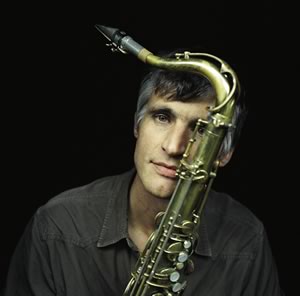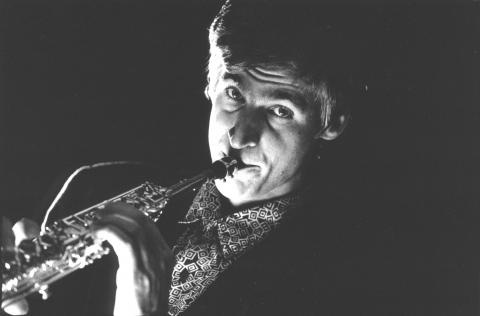
Daniel Schnyder
The Backstory
Daniel Schnyder '81 grew up in Switzerland in the ‘60s and ‘70s. His mother was a professor of French and history, and his father was an archaeologist, art history professor, and a musician in his spare time who would frequently bring home bizarre and foreign instruments from all over the world, particularly the Middle East.
Schnyder came to Berklee in the late ‘70s to study jazz saxophone and later went back home to Switzerland to study classical flute to become a proficient doubler on the instrument and also develop his classical technique and repertoire. In the following years, he had residencies and other relationships with many orchestras around the world, including the Swiss Youth Symphony Orchestra, the Radio Symphony Orchestra in Berlin, the Orchestre de Chambre de Lausanne, and the Milwaukee Symphony Orchestra, just to name a few.
Breaking Boundaries
Schnyder is well known for breaking the barriers of style and genre in his compositions. He played and composed for the Absolute Ensemble, a Grammy-nominated and German Record Critics Prize–winning group, writing pieces such as "Shourouk" and his nay concerto that combine Arabian instruments such as the oud and the nay with orchestral music.
A few of the multicultural instruments Schnyder has used in his compositions have been the alphorn, a traditional Swiss instrument for which he wrote a concerto; the pipa, a kind of Chinese lute and the national instrument of China for which he also wrote a concerto; the nay, an Arabian bamboo flute that is not fully chromatic, posing a unique challenge to the composer; and the kora, a traditional West African instrument.
Given his dual background in jazz and classical music, Schnyder has a deep understanding of the building blocks of each genre, which he uses to combine aspects of these types of music incredibly well. This quality can be observed in his bass trombone concerto (as played by David Taylor and the Absolute Ensemble), and in this recent performance of "You’ve Changed" as part of a tribute to Billie Holiday and Lester Young in which Schnyder playing the sax lead.
This year, Schnyder premiered his opera, Charlie Parker’s Yardbird, written with librettist Bridgette Wimberly. Although the work is a bona-fide opera, the jazz influence is clear. Even calling it an influence seems almost like an understatement because jazz is there in the blood of the piece. The vocalists were instructed to take some liberties with rhythm and phrasing to sound more like the jazz idiom, and there are even points where the vocalists are singing transcriptions of Parker solos, like the famous, mind-boggling break of Bird in "A Night in Tunisia," sung here by the eminent tenor Lawrence Brownlee.
In much of Schnyder’s more recent work, it is impossible to find where the jazz, classical, and world music influences end and begin as each piece melds into something that transcends genre. This is particularly clear in LOGOS, “an oratorio for our time.”
Advice for Young Students and Alumni
“People need to be open and look at music in a very universal, versatile way. If you look at music in an ideological way, you diminish your career options. As soon as you restrict yourself too much to just one thing and one industry, and that industry dies, you go down with that industry. Nobody expected the recorded music industry to die. We always thought we were going to make money selling a CD, but now there are no CD stores left.”
“Check out as many things as possible, get as many musicians together as possible. At Berklee, you have all these young people under one roof and that’s what they want to do, they want to play music.”
